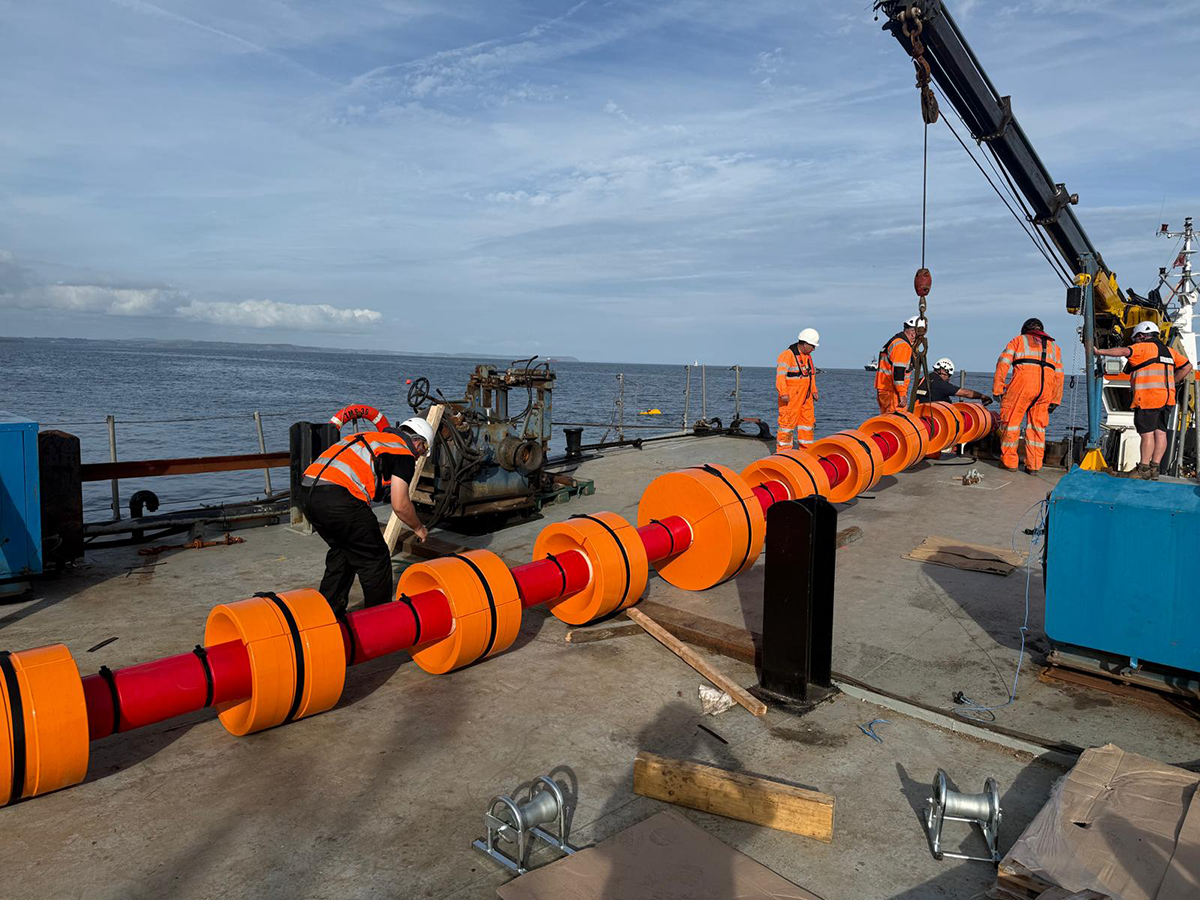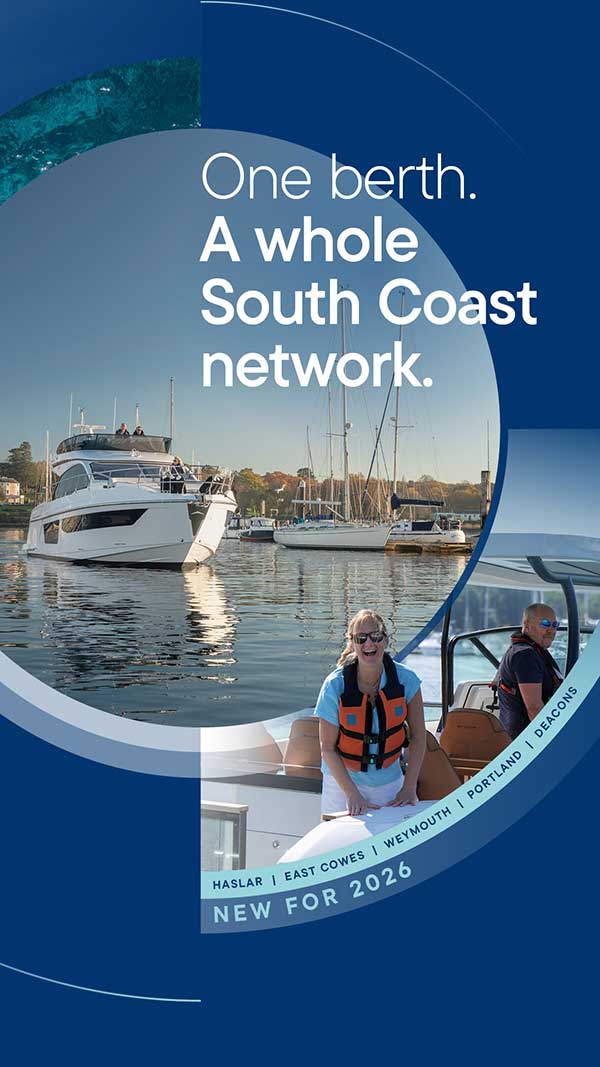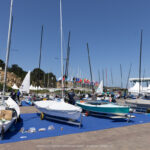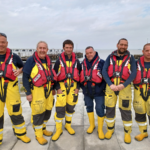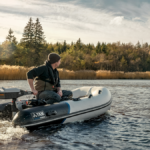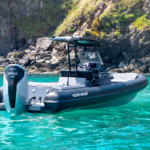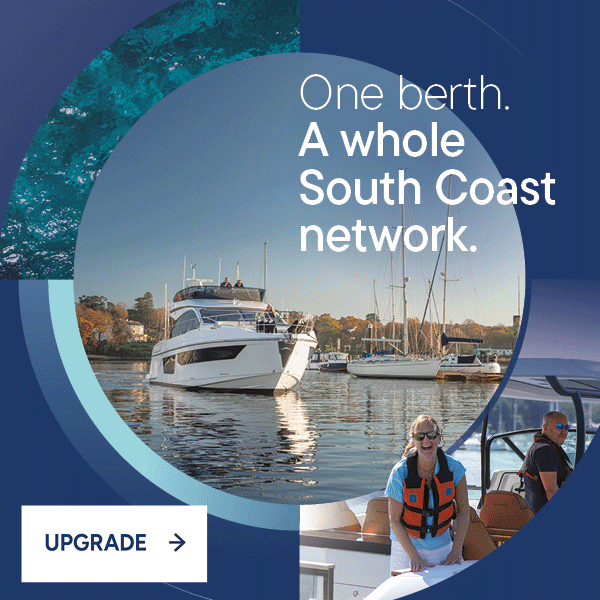As one green energy Demonstrator finishes its summer monitoring at Falmouth Harbour’s test site for offshore renewables another model – a pioneering, dynamic cable protection system – has also been deployed at FaBTest.
The latest arrival on the FaBTest site, “CableSpring” is a new integrated buoyancy and cable protection system designed for submarine dynamic power cables that connect floating offshore wind turbines to the grid. Designed by SeaThor Ltd to enhance the durability of cables in challenging shallow waters and energetic wave conditions, CableSpring widens the design envelope for offshore engineers.
FaBTest itself is a 1.5km area of seabed 4.5km off land in Falmouth Bay which has been leased by the Harbour from the Crown Estate to allow real-world testing of devices related to renewable energy and associated equipment.
Andy Simmonds from SeaThor says, “Following extensive design and laboratory testing, it has been great to see CableSpring at FaBTest – which provides the ideal location for real-world sea trials. Excellent port facilities and local expertise provide the best support for research and testing.”
This crucial phase of research and development is being supported by the University of Exeter, whose team is providing advanced hydrodynamic modelling to simulate how the system behaves in ocean conditions and have managed the marine licensing procedure.
Prof. Philipp Thies from the University of Exeter says, “It is fantastic to work with innovative engineering companies. In this project, our work has really helped to refine predictive models to assess CableSpring’s performance in future commercial deployments and improve research methods for this crucial engineering challenge.”
The CableSpring’s deployment at at FaBTest coincided with the departure of Buoyant Production Technologies’ power and control buoy, designed by Southampton-based BPT with a steel hull built locally at APCL A&P Falmouth. This green-energy Demonstrator has been at FaBTest to test and monitor design and technology for supporting Floating Offshore Wind (FLOW), subsea carbon capture and other offshore industries.
Falmouth Harbour’s Environment Manager Vicki Spooner says, “Seeing not just one, but two cutting-edge marine energy devices deployed at FaBTest this year has been a real milestone.
“By bringing innovators to Falmouth, we’re not only powering a more sustainable future for the maritime industry but also boosting the local economy and putting Falmouth firmly on the map for marine energy.”
Each project destined for testing at FaBTest requires permission from the Marine Management Organisation (MMO). This licensing and implementation process is supported by partners working hand in hand including designers, Falmouth Harbour, Celtic Sea Power and the University of Exeter among others.
Neil Farrington of Celtic Sea Power says, “We’ve been delighted to support the consenting process for new technologies at FABTest. Especially as it is providing contracts for local companies and highlights the growing investment into Cornwall from offshore renewables.”
Falmouth Harbour sees this collaborative approach as key to the success of FaBTest with benefits for developers, partners and local suppliers.
Organisations interested in testing their renewable energy-related projects at FaBTest should contact Falmouth Harbour. For more information on this and other work of the Harbour including its wide range of commercial and environmental initiatives see www.falmouthharbour.co.uk








